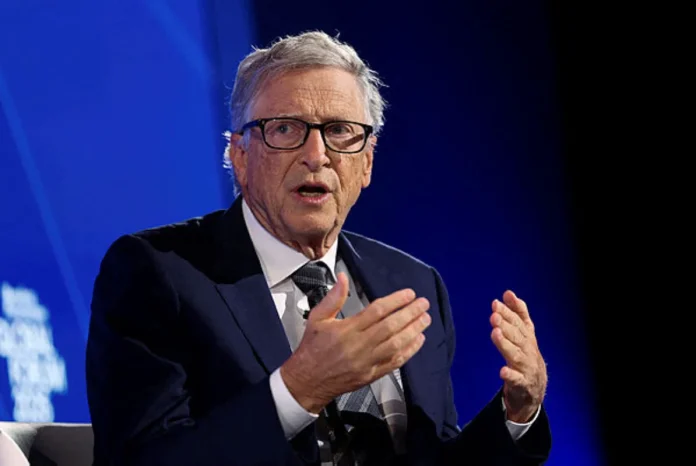Bill Gates calls for climate strategy shift to health and adaptation over temperature goals ahead of COP30 talks in Brazil next month.
LONDON: Billionaire investor and philanthropist Bill Gates has urged world leaders to adapt to extreme weather and prioritise health improvements over temperature reduction targets ahead of the COP30 climate talks in Brazil.
COP30 will take place from November 10 to 21 in the port city of Belem within Brazil’s lower Amazon region.
Countries are scheduled to present updated national climate commitments and evaluate progress on renewable energy targets established at earlier summits.
The world has spent the last decade pursuing Paris Agreement goals to limit global warming to well below 2 degrees Celsius above pre-industrial averages by mid-century.
Gates stated on his personal blog that while climate change remains serious, it is “not civilization-ending”.
He proposed that climate resilience would be better achieved by strengthening health and prosperity rather than focusing primarily on temperature as the main progress measure.
Gates advocated for a strategic pivot toward improving human welfare in vulnerable regions through investments in energy access, healthcare, and agricultural resilience.
He argued these areas deliver more equitable benefits than temperature goals and should form the core of climate strategies at COP30.
Through his climate-focused venture network Breakthrough Energy, Gates has invested billions to accelerate clean technology innovation.
He challenged policymakers and donors to rigorously assess whether climate aid is being spent effectively.
Gates urged stakeholders to utilise data for maximising impact and called on investors to support companies developing high-impact clean technologies to accelerate cost reductions.
He noted that direct deaths from natural disasters have decreased by 90% over the past century to between 40,000 and 50,000 annually.
This reduction stems largely from improved warning systems and more resilient infrastructure according to Gates.
United Nations Secretary-General Antonio Guterres and the World Meteorological Organization recently urged countries to implement disaster warning systems for extreme weather protection.
The WMO reported that weather, water and climate-related hazards have killed over 2 million people during the past five decades.
Ninety percent of those deaths occurred in developing countries according to the World Meteorological Organization. – Reuters








